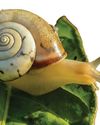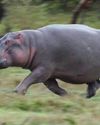
The roots of self-defence go back in time to India. As history goes, a Buddhist monk, Budidharmi, on his visit to the Shaolin Temple, found his brother monks weak due to which they could not sustain long hours of meditation and prayer without getting distracted or falling asleep. To rectify this, he introduced a combination of empty-hand techniques and yoga, which became known as Shaolin Kungfu. This te (hand) technique was locally known as tang (Chinese hand) and was formally known as Okinawa-te (Okinawa hand).
Gichin Funokoshi (1868-1957) is known as the Father of Modern Karate. He had trained in Okinawa-te and found its training to be hard and lethal, so he improvised it into a gentler system and called it karate. Unlike Okinawate, karate focused strikes at skin level. This self-defence art moved from the aim of training like a warrior towards training for sports, physical fitness and spiritual development.
Karate styles
Karate was exported from China, and as it became pan existent, it underwent changes and karate styles came into existence. Karate as an art is an expression of the human body. There are stylistic differences, yet it remains basically the same art (karate). There are more similarities than differences among various styles. A straight-fist punch or straight-front kick does not change with styles or languages. The stylistic differences in the forms of karate are unimportant for students studying karate from a self-defence perspective. For these students “there are no best styles”.
Let’s look at the ways in which a karateka can train today.
1. Traditional way
This story is from the August 2023 edition of The Teenager Today.
Start your 7-day Magzter GOLD free trial to access thousands of curated premium stories, and 9,000+ magazines and newspapers.
Already a subscriber ? Sign In
This story is from the August 2023 edition of The Teenager Today.
Start your 7-day Magzter GOLD free trial to access thousands of curated premium stories, and 9,000+ magazines and newspapers.
Already a subscriber? Sign In

STICKING OUT YOUR NECK!
Maybe it's having the twins, my grandsons from New York, back home again, that reminded me of a conversation I had with them a couple of monsoons ago: \"What's that?\" asked one of them pointing to a huge shell on the ground.

Hippos can get airborne while running fast
Hippos weigh up to two tonnes, but these bulky creatures can go airborne for a period of time.

Tree bark plays a vital role in removing methane from the atmosphere
Trees are known for removing carbon dioxide from the atmosphere, thus benefiting the climate. New research shows that they offer one more benefit.

Lunar caves could shelter astronauts on the moon
Scientists have found an underground cave on the moon not far from where Neil Armstrong and Buzz Aldrin landed 55 years ago.

Manasi Joshi
The Para-Badminton World Champion

International Day of Peace
In Search of Non-violence and Cease-fire

Non-Violent Communication
How to cope with conflict situations

FR ALOYSIUS G. REGO
A short-statured bearded figure glancing through a pair of spectacles, cane in hand, and head swinging with every step, was the most feared figure in the galleries of our school, St. Joseph's Collegiate, Allahabad.

The Architects of the Future
As we celebrate Teachers' Day on 5 September, students from St Charles School, Santacruz East, Mumbai, have come together to share their thoughts and perspectives on the challenges that teachers face in today's rapidly-changing educational landscape.

JUNG & KOOK
With music, stories and news of K-pop all over the place, on Instagram, Twitter, Thread and other social media platforms, and dozens of boy and girl bands emerging from South Korea, believe me when I say that K-pop is irresistible.